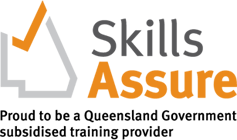If you’re considering your options for further education, you’ve likely come across a range of vocational education and training (VET) courses while seeking your next opportunity.
If your course search has left you with more questions than answers, we’re here to help you understand VET and how it can help you secure a job you’ll love.
In short, VET courses are accredited training programs that cover a wide range of subjects. Whether you want to become a nurse, support worker, massage therapist, graphic designer or web developer, a VET course can give you the skills you need to start your new career.
With over 4 million Australians studying VET qualifications yearly, there’s never been a better time to hone your skills and build your knowledge with an accredited course designed to help you secure a rewarding job.
In this blog, we’ll explore every type of VET course, where you can find them, and how to get started on your vocational journey.
What is Vocational Education and Training?
Vocational training is a form of education that prioritises practical expertise over academic study.
The primary goal of VET qualifications is to provide you with job-ready knowledge and hands-on skills to succeed in a particular trade.
Vocational education can take many forms and cover many different niches.
Whether you’re interested in business and management, computer science and IT, health and medicine or the education sector, there’s a VET qualification to help you secure a role in a career that suits you.
As vocational education focuses on teaching career-ready skills, VET courses are the perfect choice for those who are:
- Looking to start a new career in the workforce.
- Interested in developing practical skills and improving their expertise in a chosen field.
- Looking to change careers.
- Seeking a skills refresher after time off work.
VET courses are usually contrasted with higher education, which focuses on teaching in-depth information, complex theories and abstract concepts.
Who can offer VET courses?
In Australia, Vocational Education and Training courses are provided by registered training organisations (RTOs).
RTOs require registration by the Australian Skills Quality Authority (ASQA). They must follow standards set by the government to maintain their registration.
Some RTOs are also registered to deliver vocational courses to international students.
They are usually called Commonwealth Register of Institutions and Courses for Overseas Students (CRICOS) providers.
Most courses offered by RTOs are nationally accredited, meaning your certificate will be recognised across Australia and many other countries.
What types of VET courses can I do?
The VET education system in Australia has six levels defined by the Australian Qualifications Framework (AQF).
These are Certificates I, II, III, and IV, Diploma, and Advanced Diploma courses.
First, let’s look at each level of the vocational training system in more detail.
Certificate I-IV
Certificates are the ideal way to get started in a new industry, hone your expertise, or refresh your understanding. They provide the fundamental knowledge and hands-on skills needed to succeed in basic roles.
Each certificate is a step up in complexity from the last and can be used as a pathway to higher education.
Certificate I
A Certificate I is all about providing an introduction to a topic. This certificate will provide you with the basic, functional knowledge and practical skills required to perform a role at an acceptable level. They usually only need 3-6 months to complete.
Possible career outcomes:
- Retail sales assistant
- Hospitality Assistant
- Delivery driver
Certificate II
These courses cover fundamental knowledge more broadly than Certificate I courses. You will learn how to carry out core tasks in specialised situations. You can complete these courses in 0.5-1 year, depending on your level of skills.
Possible career outcomes:
- Customer service representative
- Receptionist
- Sales representative
- Security Officer
Certificate III
In Certificate III courses, you can expect to learn a broader range of skills that can be applied to various contexts.
Some careers, such as childcare roles, require a minimum qualification of at least a Certificate III course.
Possible career outcomes:
- Childcare worker
- Aged care worker
- Electrician
- Medical Receptionist
Certificate IV
Certificate IV courses are the most advanced of all certificates. They aim to provide a broad range of specialised skills and theoretical knowledge that can be applied in multiple contexts.
Therefore, they are ideal for securing a job in a highly-skilled role or niche industry.
Depending on your chosen vocational institute, you can expect to spend anywhere from 0.5-2 years to complete a Certificate IV course. With some organisations offering self-paced courses, you may be able to complete the course even faster.
Possible career outcomes:
- Web Developer
- HR officer
- Project Coordinator
- Aged care coordinator
Diploma
Suppose you want to gain specialist skills, start a career in a technical industry, or move into a senior position in your current role. In that case, taking a diploma is an excellent way to do so.
The diplomas provide comprehensive knowledge on a specific topic and aim to prepare students for skilled careers in niche industries.
Possible career outcomes:
- Enrolled nurse
- Event planner
- Operations Manager
- Graphic designer
Advanced Diploma
Advanced diplomas are more complex and in-depth than any other VET course. They take a long time to complete and focus on technical training and developing specialised skills that can be applied to various contexts. Advanced diploma course can take upto 2 years to complete.
Possible career outcomes:
- Paramedic
- Network administrator
- Legal assistant
- Environmental health officer
Other courses
Many providers also offer English language courses, particularly for people on student visas.
In Australia, these courses are known as English Language Intensive Courses for Overseas Students (ELICOS).
However, these courses are not nationally accredited and will not be recongnised as VET Courses.
These programs allow you to develop your English skills as you gain the practical experience required to join the workforce.
Want to find out more information? Visit the complete list of nationally recognised training courses by visiting the Australian Government’s MySkills website here.
Are there any entry requirements for VET courses?
VET courses are renowned for their accessibility.
Under most circumstances, you’ll need very little pre-vocational training to get started.
Depending on the course requirements, some advanced courses may require you to have completed previous certificates or be an active worker in your chosen industry.
Many vocational programs will recognise work experience as a substitute for academic requirements.
Most VET qualifications require basic numeracy and literacy.
You may also be required to attend an interview to see whether you’re right for the course.
Under most circumstances, VET courses are significantly more straightforward to start than a university degree.
So, if you’re a self-motivated individual that wants to build lifelong expertise, there’s a VET course for you.
What is the difference between higher education and VET training?
VET courses are all about practicality. They will teach you hands-on expertise and experiential knowledge that you can apply to various vocational roles.
In contrast, higher education courses are based on complex theories and comprehensive analysis.
A VET course typically also includes a vocational placement, during which you can apply your skills in a real-world scenario. Instead, higher education courses are usually exam-based; you focus on intensive study and revision to pass their final assessments.
Where can I find VET courses?
Sage Education is one of Australia’s leading providers of accredited vocational courses in the early childhood, aged and disability care sectors.
Since 1998, we’ve helped thousands of successful applicants like you develop the hands-on expertise and practical skills needed to succeed in their chosen career path.
In the process, we’ve seen our graduates build lifelong skills and start new, rewarding roles in industries they love.
At Sage, our duty goes beyond providing best-in-class training. That’s why we help you secure a job upon your course completion.
Our partner employers actively seek out our graduates because they understand that they have the job-ready skills to thrive in vocational roles.
From valuable advice and study help to a CV rework and interview tips, our team of experts are on hand to provide holistic support and help you confidently start your new career.
We understand that life can get in the way when it comes to completing your training. That’s why Sage offers a mixture of in-person, self-paced, online and blended learning courses.
Whether you work a full-time job, have family commitments or want to spend more time doing your favourite hobby, we’ll work with you to find a course that fits your busy schedule.
Want to find out more about what we do? Browse our full range of courses on our website today.
If you still need to figure out which pathway is right for you, why not get in touch?
Our team of advisers are always ready to lend a helping hand.
When you enrol with Sage, you aren’t just choosing a first-class training provider; you’re picking a client-first provider that cares about finding you a job you’ll love.



